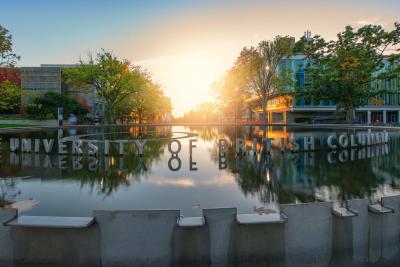Successful Proposals Selected for Data Science Catalyst Program
July 22, 2024

July 22, 2024

We are excited to share two outstanding projects that have been selected for the inaugural Data Science Catalyst Program! Congratulations to Michelle Tseng from Botany and Diane Srivastava from Zoology for their successful proposals.
A heartfelt thank you to all who applied for the program. We highly recommend you submit your revised proposals for the next round in November 2024.
The two projects will both kick off this summer, aiming to harness data science to advance their respective fields. These initiatives promise to bring innovative approaches to research, leveraging data-driven insights to tackle important challenges.
Michelle Tseng, Botany
Butterfly populations are declining globally due to pesticides and habitat loss. Fortunately, the public's interest in butterflies has led to millions of photos on platforms like iNaturalist, which are now being used to track seasonal activity and distribution patterns. This project aims to develop algorithms to analyze these photos, identifying nectar plants and assessing their impact on butterfly ecology in British Columbia.
Diane Srivastava, Zoology
The distribution of energy through food webs, from prey to predator levels, forms biomass pyramids that depict biological energy stocks. Understanding the factors shaping these pyramids is hindered by limited comprehensive datasets across diverse climates and regions. The Bromeliad Working Group, led by Diane Srivastava at the University of British Columbia, has gathered ecological data from aquatic bromeliad food webs across the Americas over 15 years. They aim to use advanced data science to integrate and expand their database, enhancing their ability to analyze biomass pyramid shapes and their ecological drivers globally.
We honour xwməθkwəy̓ əm (Musqueam) on whose ancestral, unceded territory UBC Vancouver is situated. UBC Science is committed to building meaningful relationships with Indigenous peoples so we can advance Reconciliation and ensure traditional ways of knowing enrich our teaching and research.
Learn more: Musqueam First Nation